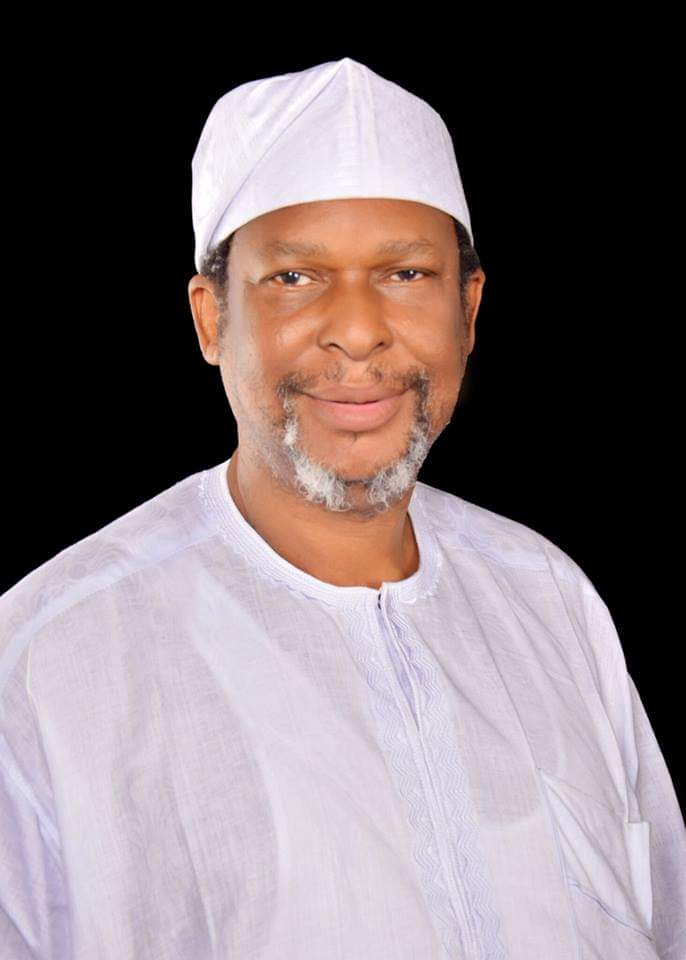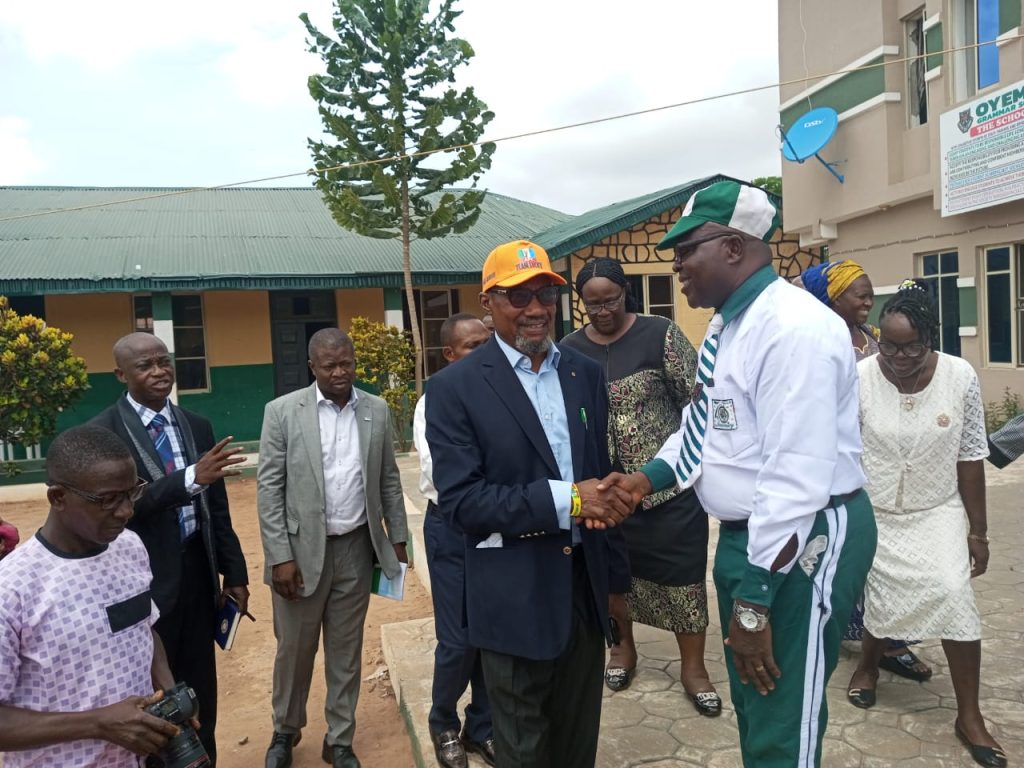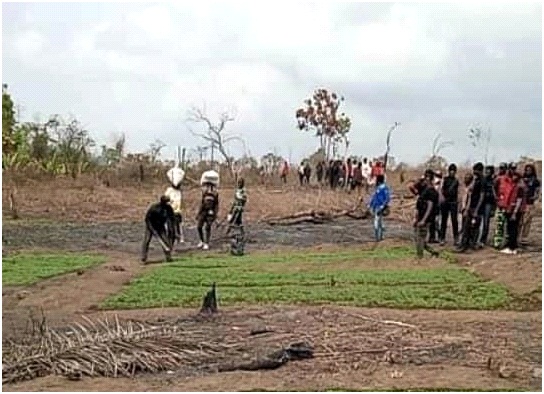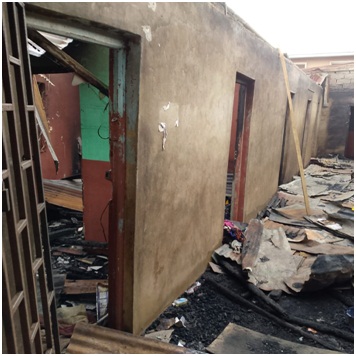Border towns and cats watching over fried meats
Border towns and cats watching over fried meats
|
By Saheed Ibrahim
Ondo state will continue to witness the invasion of her borders by Almajiris and migrants from other states as long as the debauched activities at her borders remain unchecked.
The situation at Ondo-Osun border raises a cause for alarm. The road to the border was as busy as a normal day without lockdown.
Concerned as migrants and Almajiris continue to make way into the state, despite security men at the closed border.
The road leading to the border was as busy as during normal day. The road was supposed to be devoid of vehicles coming in or going out of the state, except those conveying necessities.
Trailers of different kinds were on the road. A commercial driver that plies Akure-Owena road, who also lives at Owena town, explained that trailers, especially those belonging to Dangote, do come in, even though only those conveying food items and other necessities are to be allowed in and out of the state.
He was not wrong. I saw the trailers “strolling in” as if there was an agreement between them and those manning the border.
Against the directive that all vehicles should be thoroughly checked, these trailers had free pass through the border. Then, it was crystal clear how Almajiris made their way into the Sunshine state.
Right on the bridge that linked the two states were officials of The Nigerian Civil Defence Corps, Nigerian Police, Road Safety Corps and COVID-19 Border Monitoring Vanguards (dressed in lemon jacket). Soldiers were by the roadside.
According to one of the Border Monitoring Vanguards, there is division of labour. While the security agents check vehicles, the Vanguards check motorcyclists and pedestrians crossing the bridge.
His words; “They (security agents) do not know the bike men and those crossing on foot. We are the ones that can identify everybody crossing. Theirs is to check vehicles and trailers. We live here and we know ourselves.”
When questioned about why some bike men still convey travellers in, he replied, “you know our people now. There was a day we wanted to send a woman back and she said she lost her child and needed to go there. Will I send such person back?”
He also confirmed that some of the bike men do bring travellers in “but we are doing our best,” he said.
I crossed the bridge to Osun State unquestioned. After walking in for about 200 metres, I walked back to the bridge and Okada riders by the right-hand side, adjacent a small Hausa mosque, started beckoning at me.
They asked if I wanted to cross the bridge. Despite carrying a big bag on my back, I walked back into Ondo State.
I was not the only one; there were many travellers crossing on foot as well. A man from Ibadan, who paid N4,000 from Ibadan to Owena, also walked in to join commercial vehicles going to Akure.
After a fully loaded Adamawa Express bus came in among several other vehicles, a white J5 with ‘Miyeti Allah’ written at the back was approached by an official of FRSC. There was back, and forth discussion and the driver of the vehicle brought his pocket and showed it to the officer in an attempt to show how much he had on him. The vehicle was delayed, but after a long plea and brief discussions behind the vehicle, he was allowed in.
The abandoned bridge is another route through which anyone familiar with the border can come in. Although the bridge is blocked, there is a way one can manoeuvre it, as I was shown by those passing through the bridge.
The border was ever busy, not only with vehicles but also people crossing on foot. It was learnt that many people living in Owena Ijesa (Osun State) have businesses and farms in Owena Igbara Oke (Ondo State).
This poses serious challenge for security officers posted to the border. This is why the task to check pedestrians and people on bike is entrusted to the Border Monitoring Vanguards.
As much as the Vanguards challenged those crossing on foot and motorcycle, nobody was turned back, except two Hausa men.
Travellers on foot were halted but later released. “As Omo Yoruba ti gbogbo wa je”.
The queue on the bridge was not long that fateful Saturday. I was told that it is usually about one kilometre long in Ondo and Osun States respectively. Despite the long queue, ” they will still come in”, a resident of Owena town explained.
While sitting at a automobile spare parts seller’s shop, one of the police officers, approached to take some time off the scorching sun.
“Epele sir, well-done”, I greeted him. He looked like someone who wanted to leave the border and go back to his family. In our discussion, he explained that it is not easy manning the border, as people continue to come in.
He further noted that locking people down in Nigeria is not an easy task, as many Nigerians are daily earners. He said, we are using our discretion”.
The Human Cement bags
If there are vehicles that secretly convey immigrants into the state, it would be cement trailers.
I was still observing the border when a Mopol officer sighted some people in a trailer, which had already been passed to enter the state. He and another officer immediately went after the trailer in a police patrol van.
I hopped on a bike too to confirm what he saw. I was surprised to see about five people (based on those I saw from where I stood, they may be more) sitting like cement bags in the trailer.
By their dressing and accent, they were from Osun State. The trailer had Kam Haulage, KH 008 and the label of “Nigerian Legion Mass Transport scheme 2020” on it.
The trailer was intercepted some metres away from the soldiers’ barricade. The police ordered the people to come down and dropped all their loads.
The driver, a young guy in his late 20s or early 30s, was furious and he yelled at the human cements, “I told you to put those loads down very well, you have implicated me now”.
He then went down to meet the officers and there was back-and-forth discussion. Well, the discussion went well, he was let go with his human cement bags.
While standing at the same spot, another cement trailer, which I perceived to be conveying people to Akure, passed. I joined a commercial vehicle, one of those conveying travellers from the border to the heart of the state.
At Road Block in Akure, the passengers were disembarking when I got there. About six people, covered with cement, alighted from the trunk of the trailer with their luggage.
From the lamentation of one of passengers, a woman dressed in all-white attire, each person paid N1,500 to the trailer driver, a Hausa man.
The woman was lamenting that she was going to Ikare but the driver dropped her in Akure, saying she had no kobo to continue her journey to her destination and begging people to donate money for her.
“You should have stayed in one place, that serves you right”, I said to myself and went back to the border for the night experience.
Curfew and night life at the border
As directed by Governor Rotimi Akeredolu, curfew in the state starts from 7pm to 7am. This was not the case in Owena Igbara Oke.
Curfew there starts when natural curfew sets in: when people get tired of staying outside at night.
I thought Gabriel, an automobile parts seller at the border, was joking when I asked about curfew and he said, “Aye La wa nje n’ibi” (we are enjoying here).
He further stressed that they “can stay outside as long as they want, sometimes till 10pm; nobody cares”.
At 7pm, a time where the capital city and most parts of the state will be empty of people and vehicles, Owena was basking in the euphoria of freedom from being coerced to go inside.
Night life was as normal as a right life during the pre-pandemic period. Traders, especially “Suya, tea, noodles and food sellers, own the night.
Business booms during this period for the food-items sellers. People travelling across the state had to stop at the border because Osun had locked her border.
So, travellers disembarked to have a feel of the “Freetown”. I must join them too, you know.
As at 9pm when I retired to where I lodged, there was still no curfew in the town. People wander around as they wish, and I wondered if the town was part of Ondo State.
Shop/Market Closure
I must agree with Gabriel that life is different at the border town. In contrast to what is obtained in other parts of the state, where markets and shops are locked, shops at Owena town conspicuously open for business.
Almost all the measures and regulations put in place by the state government to curb the spread of the novel virus were being flouted with impunity.
To my surprise, a beer parlour by the roadside with the name “Tarmak Beer parlour”, opposite Isoro Owo garage, Owode Owena Igbara Oke, was opened for business with songs blasting from its speakers. Some men were there ” drinking coronavirus” away.
Some metres away from this beer parlour is a welding workshop in full operation. The welder and his three apprentices were busy with their activities, without concern for any disturbance from government officials.
The situation at Ondo-Ekiti Border
On May 6, my phone rang and it was this friend I call “Ife special”. She inquired if there was still border closure in Ondo State and I answered in the positive. She said she was coming to Akure. I warned her to stay put in Ado-Ekiti. In her words, “Don’t worry, it is not a problem”.
The following day, she called that she had arrived. “I thought the border was closed”, I said in surprise. She just laughed.
She narrated that “the driver conveying us from Ado dropped us at Iju and he paid the security agents at the border and another commercial vehicle conveyed us to Akure”.
Three days after, she went back to Ado-Ekiti. Recounting her escapade, she explained, “We didn’t pass through Ita-Ogbolu. According to the driver, that road is blocked. So, we passed through Igbara-Oke. We passed through Futa road, to Igbara Oke, to Ibuji and from there, we entered Ekiti.
“The road was filled with policemen and soldiers, but the driver bribed his way through. We paid N1,500 for the journey, because the DRIVER MUST DROP MONEY AT EACH CHECK POINT”.
She added that there were other vehicles that passed through the border the same way.
Another Ondo-Ekiti traveller, with the nickname Lokoso, also told The Hope that moving in and out was easy. According to him, whenever he wanted to travel to Ayetoro, he would “talk to drivers at Ado garage in Akure and they know how to manoeuvre their way through the border. They usually pass Ilawe.
“We usually payN 2,500 and the drivers will drop N500 were at every police check point”, the man who had travelled four times between Ekiti and Ondo state narrated.
There were similar reports from people who had travelled in and out of the Sunshine States. The stories across the borders are the same.
Security agents, commercial drivers, trailer drivers and bike men were aiding and abetting travellers across states.
The porosity of the borders gave way to corona infected people to gain access into the state, and this is the similar situation in many states as well.










